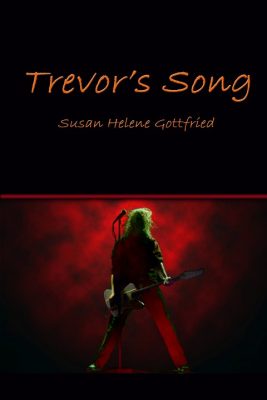October 24, 2019
As a line editor, over the years, I’ve developed a real love for two dialogue tags: asked and said. They are sneakily powerful, serving a variety of functions. And they aren’t narcissistic words, either, like some dialogue tags can be. You know: dialogue tags other than said.
I hadn’t really thought about dialogue tags other than said or asked much. I’d been too focused on the job said and asked do. But one day recently, I had a client – we’ll call her Stevie – and she used a crazy amount of dialogue tags other than said. I’m talking… well, about 99.5% of the tags were other than said.
And I realized something. Something important.
She was using words like commanded, appealed, soothed, admonished, challenged, criticized, questioned, countered, chided, contested. And many, many more (I actually wrote almost all of them down!)
And okay, a lot of them start with the letter C. A lot of them start with S, as well: scoffed, smirked, scolded, shot back, stated, sympathized, and more.
That’s not what I noticed. Nope.
I noticed that many of these words are aggressive words. They are words of verbal warfare, of one-upmanship, of hostility and anger.
And beyond that, I noticed two other things:
1. They were making me very very angry and I had to take frequent breaks and actually leave my office for a few minutes, until my blood stopped pounding in my ears and the black cloud over my head broke itself up.
2. No matter how calm the characters were supposed to be, those aggressive words made them seem as if they, too, were arguing and had a contentious relationship. And you know what? When you’re trying to write two people coming together and maybe having feelings for each other, that doesn’t work so well.
In short, no. But use them sparingly. A lot of them tell what the dialogue shows. Questioned, for example. Stop and think. Can the reader tell that the character is questioning the other? Does the content of a character’s speech show us that they are sharing a secret? Then there’s no need to use confided.
But sometimes, you need that extra oomph. Sometimes, using he countered in a spot helps the reader understand the dynamic between the two characters. Maybe that helps the reader understand that a negotiation is happening. That’s a valuable spot in which to use a dialogue tag other than said.
So my takeaway for you today is to take a good hard look at your dialogue tags. Look at the tags used in the book you’re reading—because of course you’re reading, right?
Take a step back. Change that tag to another word. See how it affects the reader, the characters, the tension in the scene, the dynamics between the characters who are speaking.
And never, ever, be afraid to use said. Or asked. They are good little words.
Check out this older post, about a time when I encountered tags other than said in a published book.
Or this one, which came about because one of you had a question about that post.
And then you gotta wonder about the difference between asked and said, right?
Another reader question about asked and said, and here’s a bit more in-depth answer to that question.
This is the spot where I’m supposed to link to a bunch of other posts that reinforce this idea. But most of them… I don’t like. They are either too elementary (What is a dialogue tag?) or kinda insulting to those of us who believe that you can use both types of tags – said/asked and the fancy stuff – just with caution and an eye toward good craft. You, my reader, are savvy enough to toe this line. You really are.
So here’s one good one about the subject. It’s from Litreactor, which is a new-to-me site, so expect me to poke around there some more and see what they’re all about.
Look out for sites like this. It’s Reedsy, and yes, I’ve got a profile there and you can see it and hire me through it (but why when I’m right here and you’re right here?). But this… isn’t good advice for a young writer. The implication is that you only want to use dialogue tags other than said, and we know that’s not how this works. SAID. ASKED. These are magic words. Use ’em.
September 20, 2017

The cover of Trevor’s Song, because that novel is as personal as this post. If you’ve read it, please leave a review! If you haven’t, grab a copy at your favorite retailer.
I don’t usually get this personal when I give interviews. I don’t like to, and I often skip them. I encourage all authors to draw their own boundaries about what they will and won’t talk about, and I encourage their/our hosts to allow them/us to do so.
But something compelled me in this media query. Maybe it’s my own need to finally share with the world my real perspectives and my real truths, things I’ve kept hidden from all of you but increasingly not to myself. Maybe I’m making up for fifteen years of hiding.
Or maybe I just feel comfortable talking about it at last. Certainly, my truth may be another’s lifeline, salvation, or help. Hell, maybe it’ll inspire some fiction, and that’s the best compliment an editor like me can get.
The article is up at Reader’s Digest. I’ll let you click through and read it, not because it’s too horrible and personal to talk about but because a reporter did some good work and you should check it out and give her props for it. Fiction ain’t the only kind of writing I love and respect (it’s just my preferred type of writing to work on), and I encourage you to seek out good writing and good reporting wherever you can.